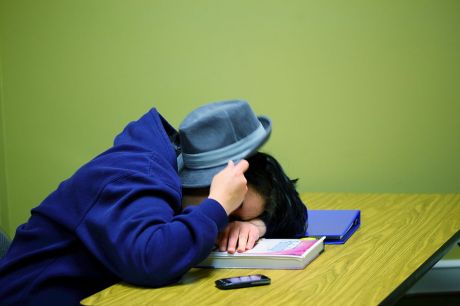Effects of sleep loss on teens

Free College Pathology Student Sleeping Creative Commons
By Pink Sherbet Photography from Utah, USA [CC BY 2.0 (http://creativecommons.org/licenses/by/2.0)], via Wikimedia Commons
Examining adolescent sleep loss helps uncover important findings of causes and effects in relation to cognitive performance, behaviour, emotional regulation and development.
Sleep loss not only affects adults but also adolescents. It is reported
that roughly 80 % of teens suffer from partial sleep deprivation. How
this dangerous social and public health problem impacts the daily
function of teens has not been fully addressed.
An EU-funded project, SLEEP LOSS IN TEENS (Sleep loss in adolescence: Effects on cognition, mood, and behavior), addressed this knowledge gap. The study examined the causal effects of sleep loss on neuropsychological functioning, on subjective measures of mood, and on behaviours like academic performance. Included were both direct and indirect effects of sleep.
A mixed model repeated measures design was created and used to meet these goals. Most assessments were conducted during school breaks such as summer holidays. Sleep restriction and sleep extension were measured on each participant in counterbalanced order. Times and hours of sleep were regulated for spans of four consecutive nights. Participants were monitored and kept sleep diaries during the experiments.
Following the experiments, participants underwent 45-minute computerised neuropsychological testing sessions that included versions of tasks for reducing possible effects on learning. They also completed questionnaires about mood, behaviour and sleepiness.
Findings point to accumulated sleep deprivation in adolescents being linked to deficits in multiple cognitive areas and functions. This study will help increase our knowledge of the functional consequences of sleep loss in teens, which is useful for public policy as well as education data.
published: 2015-12-08

